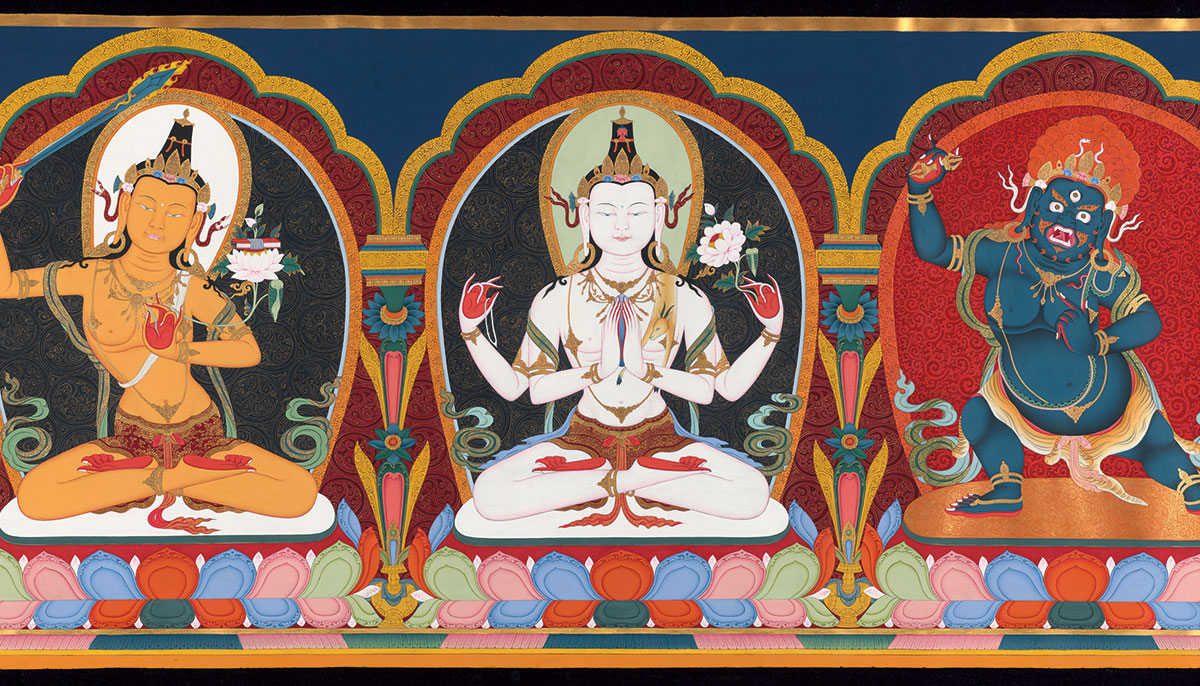It starts with love.
Pretty much everything that’s good and decent in us—generosity, kindness, connection, respect, morality, openness, responsibility—is a form of love. It’s almost a tautology: what is love is good; what is good is love.
But love is not enough.
It’s not enough if we really want to help others—to ease suffering, to bring happiness, to build a just, sustainable, and caring society. In Buddhism, people who want to do that are given a fancy name: bodhisattvas. That just means they want to benefit other beings. If that’s what you want—and I’m sure you do—then you’re a bodhisattva.
To guide our love and power we need wisdom.
If love were enough, there would only be one kind of bodhisattva. But in Mahayana Buddhism there is a trinity of bodhisattva archetypes who represent the three things we need if we’re really going to help others and make a difference.
It starts with love, of course, our heart bond with other beings. That’s represented by the beloved bodhisattva Avalokiteshvara, the bodhisattva of compassion, known as Guanyin in Chinese and Kannon in Japanese.
Love helps us heal ourselves, our relationships with others, and our wounded society. It is the foundation of all that is good. Buddhism is famed for its meditation practices that grow the love and compassion in our hearts. This issue teaches us six different meditations that will help bring more love into our lives, benefitting ourselves and everyone around us.
But if we’re really going to help people effectively, we need power to go with our love. The power we need to do good and fight suffering is represented by the bodhisattva Vajrapani.
As my dear friend Buddhist teacher Gina Sharpe says, love plus power is the formula for real change. Power is a dirty word for many people, and for good reason. Abusive power is surely the greatest cause of human suffering, at every level from intimate relationships to global politics. Its opposite—empowered love—is how we change our world for the better.
Yet that’s still not enough. To guide our love and power we need wisdom. Wisdom is represented by the bodhisattva Manjushri, whose sword of insight cuts through ignorance and delusion.
At its highest level in Buddhism, wisdom is the realization of emptiness. This can seem pretty abstract, but realizing that reality is empty of our personal biases, confusions, and projections enables us to act with clarity and accuracy. At a practical level, wisdom discerns what creates suffering and what brings benefit. That is the only guide we need in life.
Love, power, wisdom. Avalokiteshvara, Vajrapani, Manjushri. They’re present throughout this issue, from Buddhist chaplains in the time of pandemic, to wisdom for a better future, to the goddess-inspired art and activism of Mayumi Oda.
Love—wise and powerful love—it is all we need.
